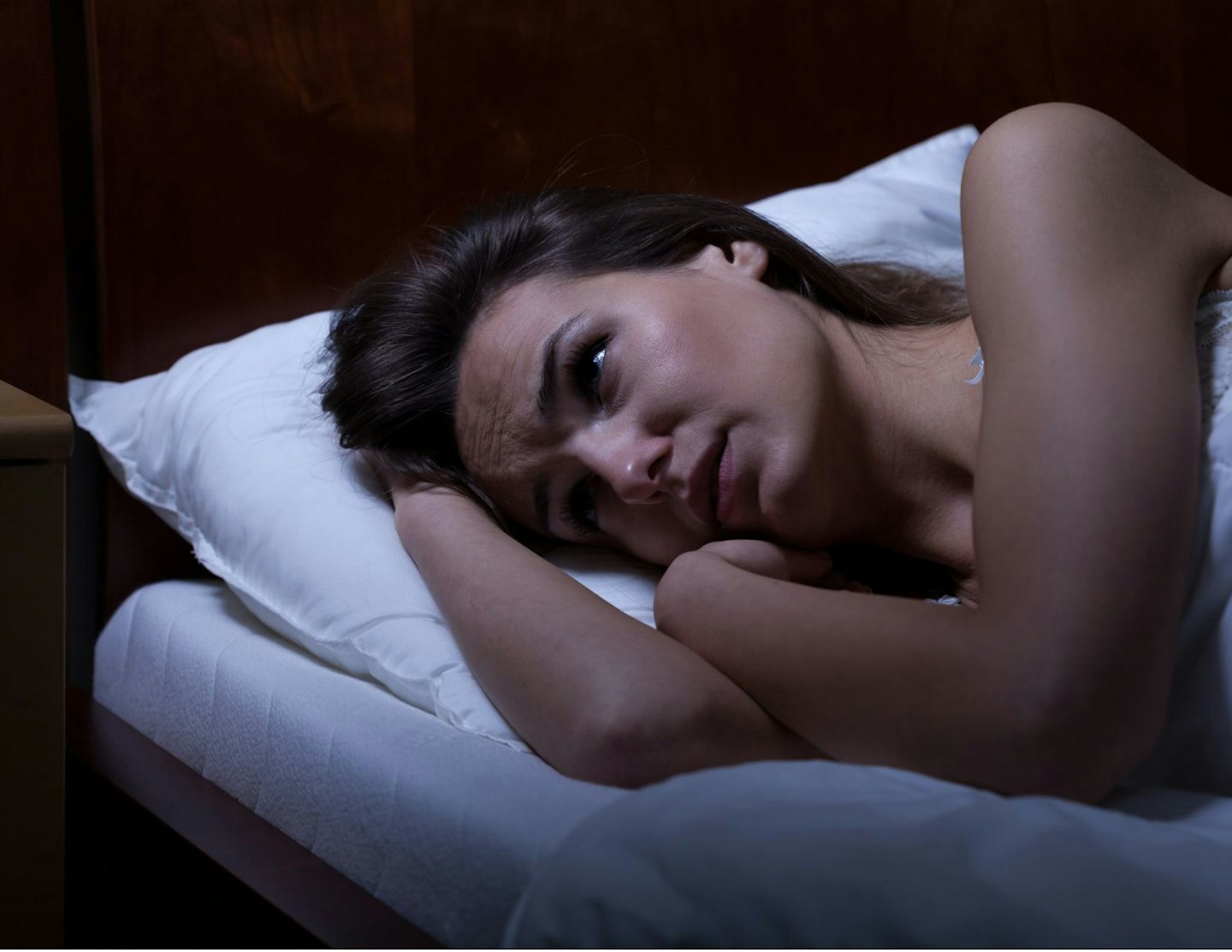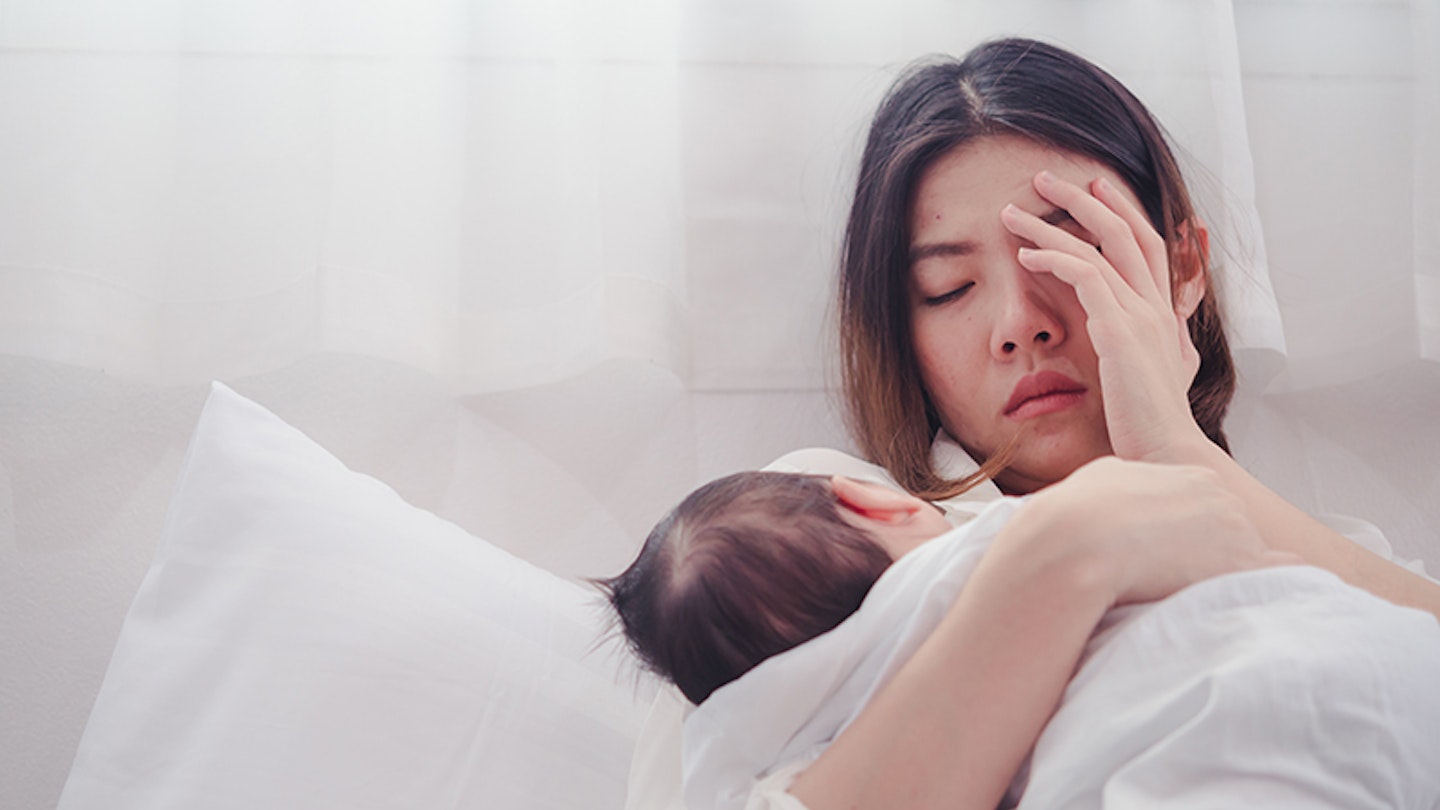As a new parent, it's pretty likely you'll be getting less sleep with your newborn than you were used to before your little one arrived. Most parents try to mentally prepare for this, but that doesn't mean it doesn't take it's toll, because sleep is obviously important for our health. Everyone is different, but did you know that exhaustion and sleep deprivation are the key triggers for postnatal depression?
Postnatal depression is more common than you might think, especially as it's linked to lack of sleep. You are not alone and you deserve support. It doesn't make you a failure as a parent, and there is a lot of resources out there than can help you during this time.
Dr Harvey Karp, sleep expert, author, renowned Paediatrician and Founder of SNOO, has dedicated his life work toward helping babies and new parents sleep better - here he shares his insight into postnatal depression and tips for how parents can cope.
Need to talk to someone? Here’s how to get help when you need it
What is the connection between sleep deprivation and postnatal depression?
It was commonly believed that the key trigger for postnatal depression was a hormonal shift. Something that may happen to your body after birth. However, many women have those shifts and don’t develop postnatal depression and many parents (men, adoptive parents) don’t have those hormonal changes, yet they do develop postnatal depression. Why? Many studies show that exhaustion is a major trigger for postnatal depression (the other two main triggers are persistent crying and feeling unsupported).
In addition to reporting not sleeping well themselves, most depressed parents also report that their babies don’t sleep well. The connection between fussy, poorly sleeping babies and postnatal depression is a strong one. One study found that 45% of mums with very irritable young babies had moderate to severe depression. That’s a 10 times higher incidence of serious postnatal depression than is typical.
Interestingly, these parents may not actually sleep fewer hours, but they definitely feel more exhausted. They need an extra hour or two of sleep each day just to stay in balance. And not only does exhaustion stoke depression; depression increases exhaustion. New parents with postnatal depression often state they can’t sleep well because their minds are reeling with concerns and fears. Even when the baby is snoozing, worries keep them awake and spinning thoughts tend to rouse them from light sleep.
Key signs and symptoms of postnatal depression
Postnatal depression is marked by feelings of hopelessness, sadness, and fatigue. Parents often feel nagging guilt, like they’re the worst parents in the world or that their baby might be better off without them.
Or, they may be plagued by little voices peppering them with criticism. Postnatal depression can also lead to loss of appetite, unusual weight gain or loss, and the inability to turn your mind off and fall asleep.

Can getting a better night’s sleep reduce the effects of postnatal depression?
Yes. Sleep keeps us mentally strong. It's our healing and recovery time. Not only does getting adequate sleep reduce stress and your risk for postnatal mood disorders, but it also helps reduces tension, irritability, and fighting in relationships.
Poor mental health can lead to insomnia, which can then become a vicious cycle, as you need that sleep to keep yourself physically and mentally healthy. Breaking that cycle and finding a way to get a good nights sleep (around 8 hours) can truly make a lot of difference - which is easier said than done, but there are ways.
Tips for parents to get a better night’s sleep
• Avoid caffeine after noon and alcohol an hour before bed. Alcohol may make you drowsy, but it actually leads to less restful sleep.
• Get outside during the day. Morning sunlight helps set your internal clock straight.
• Get help if you can, and don't be afraid to ask for help from friends and extended family. Also look into sleep aids such as apps.
• Professional help like counselling and medication can also be incredible helpful. Talking to your GP could be the first step to you getting some mental relief.
• Use white noise - it’s not just for babies and toddlers! White noise covers over disruptive sounds, like your noisy neighbours or the sound of a car zooming by. These sounds allow your tired brain to ignore worries and slide more easily into sleep.
• Block out light with an eye mask or curtains. Darkness triggers the pineal gland deep within the brain to release melatonin—our sleep hormone. Even a little bit of light can pass right through your closed eyelids, sending your brain a wake-up call that shuts off melatonin, making getting to sleep difficult.
• Use breathing exercises to relax before bed. Deep breaths can have an instant calming effect.
Tips for helping babies and toddlers sleep better
• Make sure your baby or toddler gets outside for sunlight and fresh air during the day. Getting a daily dose of sunlight before noon can help get your kiddo’s internal clock on the right track.
• A predictable bedtime routine can help little ones fall asleep faster and sleep better. Routines help both babies and toddlers feel smart. Dim the lights 30 to 60 minutes before bedtime and keep bright lights (including screens) away from your child once you put them down for the night. Play white noise in the background. Reading together, a warm bath, or perhaps a massage can be relaxing cues that bedtime is drawing near.
• Boost your baby’s sleep with white noise and swaddling (until the baby starts to roll over)—the snug confines of the swaddle and shush-ing sound of white noise imitate the calming sensations of the womb.
• Use white noise all night (turn it on one hour before bedtime...playing low in a corner...then make it as low as a shower all night). Low rumbly sounds work best.
What sleep products do you recommend?
1. SNOO - a responsive baby cot that prevents risky rolling and adds soothing rhythms all night to quickly aid a baby’s sleep. This addresses the three major triggers of postnatal depression: It aids baby sleep; it automatically responds to fussing to help reduce persistent crying; and it’s a virtual extra pair of hands that expertly soothes the baby, which gives mum or dad much-needed support.
2. White noise machine - this can boost adult, toddler, or baby sleep. Use a white noise machine that plays low rumbly noise all night, and you may also want to have an on-the-go sound soother too.
3. A swaddle, such as Sleepea - Swaddling is a key part of helping babies sleep better. It gives little ones the snug embrace they loved so much in the womb. Plus, swaddling prevents startles and nose whacks that can disturb sleep.
What are the side effects of sleep deprivation postpartum?
Postpartum depression isn't the only side effect of losing sleep as a new parent. It can actually lead to certain cognitive deficits, fatigue, and mood swings. We all know how being 'sleepy' can just mess with how we function, making us feel like we're not performing at 100%, and with prolonged sleep loss, which is common during early parenthood, it's more common to get these side effects.
That's why we highly recommend leaning on your support system while you can. No, it's not always as easy 'sleep when baby sleeps', but having trusted family and friends babysit to give you some respite, or taking sleep shifts with your partner can make the world of difference.

What should parents do if they think they are suffering with postnatal depression?
Postnatal depression can have an effect that long outlasts the fourth trimester. Parents with postnatal depression are more likely to suffer from depression later in life and they may struggle to bond with their baby. It can hurt breastfeeding outcomes, strain relationships, undermine the development of their child and lead to serious self-harm.
Yes, this can sound daunting, but there is help and support out there. This isn’t a problem that parents just need to stick out. If you are experiencing symptoms of postpartum depression or anxiety, talk to your healthcare provider. They can help you come up with the right treatment plan for you.
If you are in crisis, you can call the Samaritans at 116 123 or you can call 999
Stephanie Anthony is the Deputy Digital Editor at Mother&Baby and auntie to four aged 7 to 2 months old. With a particular interest in health, she loves discovering products that make parent’s lives easier
